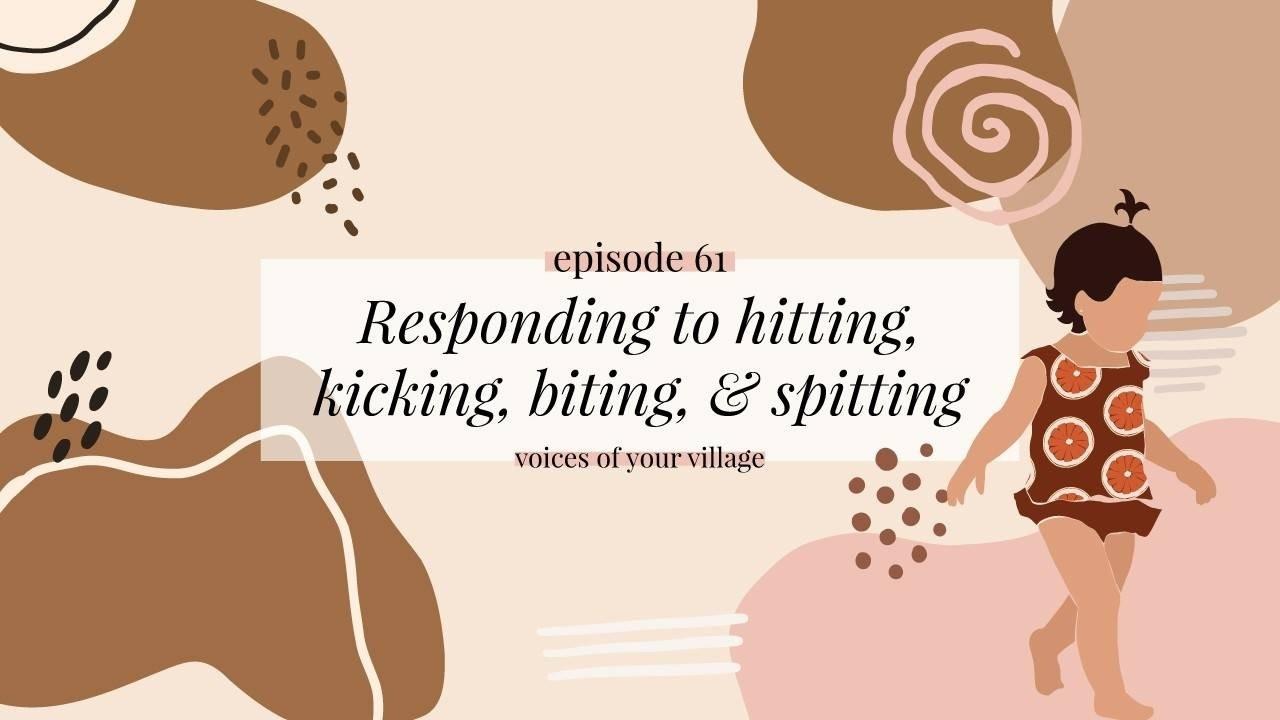How to respond to hitting, kicking, biting, spitting!

I this week’s episode I dove into challenging behaviors like hitting, kicking, and biting. When we see these behaviors in our tiny humans it can spark feelings of shame, disappointment, and embarrassment, especially if it’s happening in public. When we can work through our own feelings about the situation, we can better serve our kiddos. Rather than reacting, we can take the time to respond in a way that helps our kiddo to process the emotion behind the behavior.
It is developmentally normal for a tiny human to react to a big emotion by using their bodies when they don’t know what else to do with that feeling. When your kiddo hits or bites another kiddo, there can be a lot of pressure to appease the other parent by saying something like “we don’t bite” or “say you’re sorry.” But those phrases and that approach aren’t helping tiny humans to process the emotion or to build a toolbox of other coping strategies.
While our kiddo is feeling those huge emotions, it’s not a time for law enforcement or even for problem-solving. Stopping the behavior and then responding with empathy in that moment can be really powerful. Acknowledging how hard it is to feel those big feelings of disappointment, frustration, or anger. And then offer some strategies to help your kiddo find their calm. “Would you like a hug? Or would you like to come read a book with me?” Only after we help our kiddos calm down, are we able to move onto problem-solving.
It can be really frustrating and triggering when our kids hit us out of frustration.
Something like going to the bathroom to pause and breath can be helpful in those moments. Using mantras or phrases that help us find our own calm can also be powerful. Then when you return to your kiddo, you want to respond with empathy and in a way that makes it clear that they are not responsible for your feelings.
When they are calm you can collaboratively brainstorm a different way to cope with that feeling of frustration. Helping them process those hard emotions builds resiliency so they feel confident to try again.
Another great way to help kiddos work through emotional challenges is with social stories. This is not a strategy for the heat of the moment, but something you can try later when your kiddo is calm. You can make one up about yourself or tell it about someone else. You can give an example of when you felt a big emotion and how you tapped into your coping strategies. This helps your tiny human to remember that there are options for processing emotions that do not involve using their bodies.
I wrapped up this week by emphasizing the importance of not labeling emotions as good or bad. That can lead to feelings of shame. Instead, let’s acknowledge that some feelings are harder than others, and work towards building coping strategies to process even the most challenging emotions.
